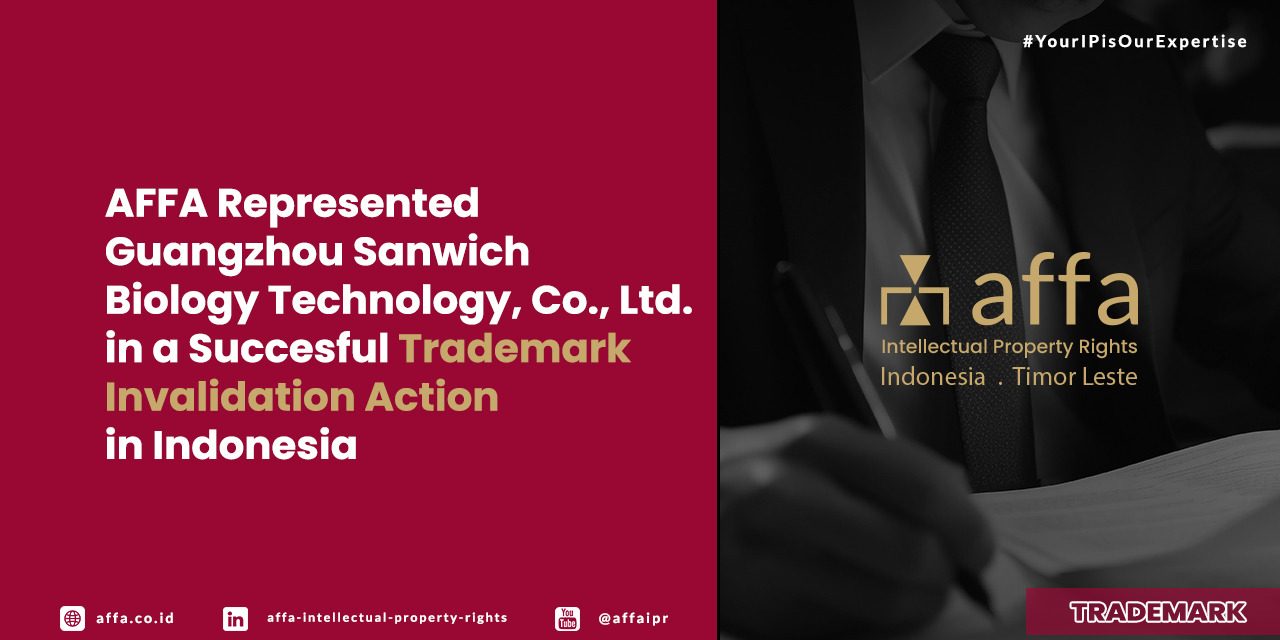On June 11, 2024, the Commercial Court at the Central Jakarta District Court granted AFFA IPR’s lawsuit, in this case representing Guangzhou Sanwich Biology Technology, Co., Ltd., to invalidate the SEVICH Mark with Registration Number IDM000917666, which gave a decision that the mark had similarities in essence and registered in bad faith.
So, how does the “first-to-file” concept apply if there is a case like the one above?
The SEVICH Trademark was first registered in China on March 21, 2016, by our client, Guangzhou Sanwich Biology Technology, Co., Ltd., in Class 3, which includes “Cleaning preparations; Abrasives; Essential oils; Toothpastes (pieces).” This Trademark has also been registered in the United States, Mexico, the United Kingdom, and the European Union.
This business has expanded in Asia, and this year, SEVICH plans to be sold and distributed in Indonesia. However, before it could be applied for in Indonesia, it was discovered that the SEVICH Mark had been registered since November 2021 by another party. The Mark has the same writing, pronunciation, and logo and is registered in the same class. As a result, our client could not obtain registration in Indonesia, even though it should have had exclusive rights to use the Mark in trade. Therefore, our client filed a lawsuit for invalidation of the Trademark.
The lawsuit was filed in March 2024 against Jong, Sylvia (hereinafter referred to as the Defendant), owner of the SEVICH Trademark in Indonesia with number 25/Pdt.Sus-HKI/Merek/2024/PN.Niaga.Jkt.Pst. The Defendant certainly does not easily give up the registered Mark. One of the points in their answer stated that they were the first registrants, so they are the party who has the Exclusive Right to use the SEVICH Mark in Indonesia, according to Article 1 Number 5 of Law Number 20 of 2016 concerning Marks and Geographical Indications (Trademark Law):
“Right on Mark means the exclusive right granted by the State to a registered Mark owner for a definite period to use his/her Mark or authorize others to do otherwise.”
Applicant in Bad Faith
One of the rulings in the Decision 25/Pdt.Sus-HKI/Merek/2024/PN.Niaga.Jkt.Pst. stated that the defendant was a registrant with bad faith in registering the SEVICH mark with Registration Number IDM000917666. Applicants who have bad intentions based on the explanation of Article 21 paragraph (3) of Law Number 20 of 2016 concerning Trademarks and Geographical Indications are applicants who are reasonably suspected that in registering their Mark, they have the intention to imitate, plagiarize, or follow another party’s Mark for the benefit of their business, causing conditions unfair business competition, deceiving or misleading consumers. For example, a Trademark application takes the form of writing, a painting, a logo, or the same color arrangement as a Trademark belonging to another party or a Trademark that has been generally known to the public for many years, imitated in such a way that it has similarities in essence or its entirety to the already known Trademark. From this example, there has been bad faith on the part of the Applicant because at least it should be known that there was an element of intentionality in imitating a well-known Mark.
The concept in this article is undoubtedly in line with the Permanent Decree of the Supreme Court of the Republic of Indonesia No. 39K/Pdt/1989 dated 24 November 1990 which reads, “That every act of using a Mark which is confusing and deceptive and confuses the opinion and visuals of the general public is qualified as containing elements of bad faith and unfair competition,” and Permanent Decision of the Supreme Court of the Republic of Indonesia No. 220 K/Pdt/1986 which states, “Local entrepreneurs are obliged to use marks with national identity, not plagiarize foreign names or marks, because this can mislead consumers about the origin of a good or service.”
Until finally the deliberative meeting of the Commercial Court Panel of Judges at the Central Jakarta District Court ordered the Directorate General of Intellectual Property (DGIP) to invalidate the SEVICH Mark registered No. IDM000917666 on behalf of the defendant by registering the invalidation of the Mark from the General Register of Marks and announcing it in the Official Mark Gazette.
Never Risk Registering Other Party’s Trademark to Begin With
In a Trademark Invalidation lawsuit, if the trademark being sued is similar in essence or its entirety, and there are indications that another party registered the trademark in bad faith towards the actual owner of the trademark, and this can be proven in court, then the first to file principle can be overridden. The actual rights of the Mark owner can be restored through a court decision in Indonesia, and the Mark owner can attach proof of the decision to the Trademark Office, in this case, the DGIP, during the examination process of the Mark registration application at a later date.
Should you have further questions regarding Trademark registration and protection in Indonesia and/or abroad, do not hesitate to email us at [email protected].








1 Comment